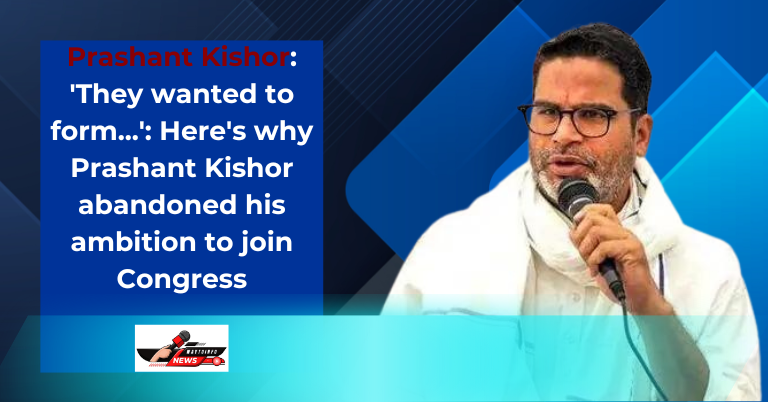Prashant Kishor: In a frank interview with PTI, political strategist Prashant Kishor delved into his involvement with the Congress party’s revival strategy and shared observations on India’s political dynamics. Kishor offered a critical analysis of the Congress’s tactics, the emergence of the Aam Aadmi Party (AAP), and the BJP’s reliance on familial ties in politics.
Kishor disclosed that Congress suggested establishing an Empowered Action Group (EAG), a proposal he disagreed with. He explained that an EAG wouldn’t be able to bring about meaningful reform within the party’s constitutional body like the Congress Working Committee. To illustrate his point, Kishor likened it to an office assistant trying to overhaul the operations of the chairperson, emphasizing the inherent impracticality of such a suggestion.
In an interview with PTI, he questioned how an EAG could reform a constitutional body like the Congress Working Committee, likening it to an office assistant attempting to improve the chairperson’s functioning. Despite the Congress’s establishment of an EAG, he pointed out, he questioned whether anyone was aware of its accomplishments.
Despite the establishment of the EAG, Kishor cast doubt on its effectiveness, expressing uncertainty regarding its tangible achievements. He emphasized the Congress’s challenges in adjusting to modern political dynamics, indicating skepticism regarding its capacity to reclaim prominence.
Contrary to speculation, Kishor dismissed the idea of the AAP surpassing the Congress and adopting its Delhi model in other states. He attributed this to the AAP’s fundamental weakness stemming from its absence of ideological and institutional foundations.
Acknowledging the BJP’s criticism of “parivarwaad” (family rule) within the Congress and regional parties, Kishor recognized the significance of this issue for the electorate. He contended that the era where leadership based solely on surname provided an advantage is now obsolete, considering it a liability in today’s political scenario.
Pointing to figures such as Rahul Gandhi, Akhilesh Yadav, and Tejashwi Yadav, Kishor raised doubts about the effectiveness of dynastic leadership. He spotlighted instances where despite substantial public support, electoral victories did not materialize. Kishor contested the notion of dynastic succession, stressing the contrast between party acceptance and public perception of leadership.
Also Read: Mariyam Shiuna
While recognizing the BJP’s recent electoral triumphs, Kishor cautioned that the party would eventually encounter demands to include family members of its leaders in influential roles. He advised against becoming complacent, indicating that the BJP would likely confront comparable challenges associated with dynasty politics down the line.

